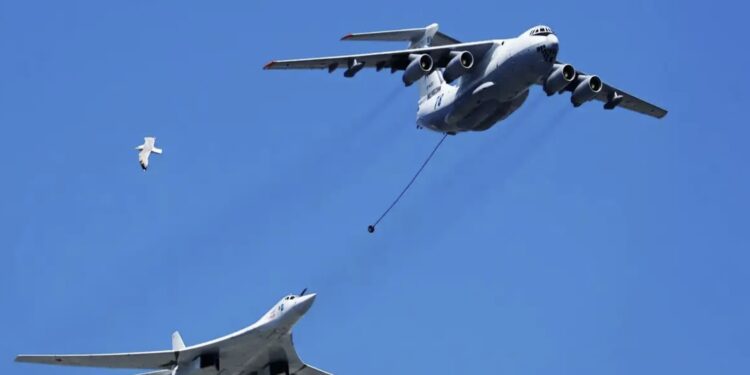In a Forceful Move to Retaliate Against Russia, Ukraine has backed up its astonishing daring Kerch Bridge Attack with a massive Cyber Operation, this time penetrating into Tupolev, Russia’s strategic bomber producer.
This two-pronged offensive, launched days following the successful drone strike which incapacitated much of Russia’s strategic bomber fleet as a part of “Operation Spiderweb,” represents an effort by Kyiv to do significant damage to Moscow long-range air capabilities and attack its defense-industrial base.
Ukrainian military intelligence (HUR) claimed that its cyber troops were able to breach into Tupolev’s internal network, stealing more than 4.4 gigabytes of extremely confidential information. This stockpile of information is said to vary from official exchanges and workers files to residential addresses, bios of engineers, purchase records and transcripts from behind-closed-doors sessions.
“The importance of the information received is difficult to overestimate,” a HUR source reportedly said, and “now in fact there is not a single secret left in the activity of Tupolev for Ukrainian intelligence.”
The intelligence is believed to include detailed information on those who are responsible for Russia’s strategic bombers the Tu-95 and Tu-160 – vital pieces in Moscow’s nuclear triad. Analysts believe that, in the future, such information could be employed in more targeted operations.
It was most likely meant as a symbolic attack but it was reported that Ukrainian online hackers also defaced Tupolev’s official website, hacking its homepage using an image of an owl gripped on a Russian aircraft, in clear reference to HUR’s emblem and computer power.
The cyberattack follows the Kerch Bridge incident, an underwater explosion that Russian propaganda claimed crippled the crucial logistical artery between Russia and occupied Crimea. It was the third confirmed strike on the bridge, a potent symbol of Russian power and an important supply route for military operations in southern Ukraine.
When juxtaposed with the recent swarm drone attack on four Russian airbases , “Operation Spiderweb,” Kyiv called it , that Ukraine contends inflicted damage or destruction on more than 40 aircraft, including Tu-95 and Tu-22M3 bombers, these tactically disparate, geographically distributed acts reflect a multi-vector Ukrainian campaign to undermine Russia’s military and long-range striking power.
All the claims are being independently verified, but the sheer volume and synchronization of these recent Ukrainian operations appear to reflect a growing sophistication in Kyiv’s offensive tactics.










![Online Scam Cases Continue to Rise Despite Crackdowns on Foreign Fraud Networks [Myanmar] Online Scam Cases Continue to Rise Despite Crackdowns on Foreign Fraud Networks [Myanmar]](https://sumtrix.com/wp-content/uploads/2025/06/30-12-120x86.jpg)





